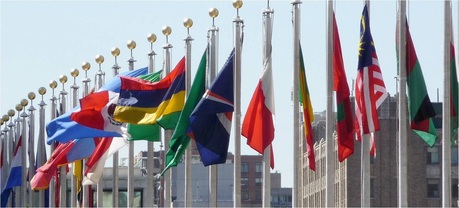
Research Interests:
My research interests fit within the broad subfield of political economy --- addressing questions that might be characterized as both international and comparative. I am interested in the effects of international cooperation strategies on the production and distribution of public goods --- particularly with regard to health, democracy promotion, and the environment. Specifically, my work focuses on two primary questions. First, how do problem structures affect the design and effectiveness of international efforts? Second, how do varying cooperation strategies among different types of actors --- intergovernmental organizations, non-governmental organizations, donor states, and recipient states --- affect the production of a public good?
Peer Reviewed Publications:
Chapters:
Dissertation Research:
Disease Control and Donor Priorities: The Political Economy of Development Aid for Health.
*Note: I do not make drafts of work in progress or under review available online. If you wish to see a draft of work in progress, please email me at [email protected]
My research interests fit within the broad subfield of political economy --- addressing questions that might be characterized as both international and comparative. I am interested in the effects of international cooperation strategies on the production and distribution of public goods --- particularly with regard to health, democracy promotion, and the environment. Specifically, my work focuses on two primary questions. First, how do problem structures affect the design and effectiveness of international efforts? Second, how do varying cooperation strategies among different types of actors --- intergovernmental organizations, non-governmental organizations, donor states, and recipient states --- affect the production of a public good?
Peer Reviewed Publications:
- Carie Steele "Multibilateral Aid and Infectious Disease Control" International Political Science Review. (forthcoming)
- Emily Naasz and Carie Steele "A Healthy Peace: Public Good Provision and Post-Civil War Peace Stability" Journal of International Relations and Development. (forthcoming).
- Carie Steele, Daniel Pemstein, and Stephen A. Meserve. "Democracy Promotion and Electoral Quality: A Disaggregated Analysis." Governance April 2021 34(2) 505-521.
- Carie A. Steele. Public Goods and Donor Priorities: The Political Economy of Development Aid for Infectious Disease Control. Foreign Policy Analysis. 2017. 13 (4) 986-10002
- Pahre, Robert D. and Carie A Steele. Teaching Politics in the National Parks. Journal of Political Science Education. 2015 11:3
- Pahre, Rober D. and Carie A Steele. What Makes it Wild? Visitors' Construction of Wildlife and Wliderness in the Greater Yellowstone Area. International Journal of Wilderness. December 2013.
- Scott, James M. and Carie A Steele. Sponsoring Democracy? The United States and Democracy Aid to the Developing World 1988-2001. International Studies Quarterly. March 2011. (55) 47-69.
- Scott, James M. and Carie A Steele. Assisting Democrats or Resisting Dictators? The Nature and Impact of Democracy Support by the National Endowment for Democracy 1990-1999. Democratization. 2005. 12(4):439-460.
Chapters:
- Carie Steele. "Never the same river twice: How Legal Personhood of rivers affects perceived stability of policy solutions" in Dare, Alexa and C. Vail Fletcher ed. 2021. Communication the Antropocene: Intimate Relations. Lexington Press Books
Dissertation Research:
Disease Control and Donor Priorities: The Political Economy of Development Aid for Health.
- Committee: Robert Pahre (chair), William Bernhard, Xinyuan Dai, and Matthew Winters
- Abstract: Disease remains the primary threat to human life and prosperity in developing countries. Over the last two decades, development aid for health has increased substantially, yet the affects of disease remain severe in many countries. Unlike other types of development aid, health aid is often viewed as technical and apolitical. I argue that, development aid for health is subject to political influences and distributional incentives similar to other forms of foreign aid. Although allocations undoubtedly reflect some aspects of recipient need, I contend that the benefits received by donors' constituencies as a result of health aid will condition these allocations. I examine the distribution of aid across diseases using disease burden as an objective measure of need. Using variation across disease characteristics --- including geographic spread, cost of prevention and treatment, and both donor and recipient burden of disease --- I illuminate the effects of donors' interests upon disease specific health aid allocations. I then extend the analysis to the distribution of health aid across disease control activities. Donors' interests play a significant role in the distribution of aid across diseases, yet have little effect on the selection of disease control activities.
*Note: I do not make drafts of work in progress or under review available online. If you wish to see a draft of work in progress, please email me at [email protected]